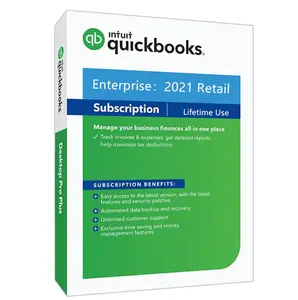Introduction to Software Small
In today's fast-paced digital world, software small solutions have emerged as essential tools for businesses looking to operate efficiently and effectively. Whether you are a startup or an established enterprise, leveraging small software applications can streamline processes, enhance productivity, and provide valuable insights. This comprehensive description explores the different types of software small, their functions and features, various applications, and the advantages they bring to businesses.
Types of Software Small
Software small is not just a one-size-fits-all solution; it comes in various forms tailored to meet specific business needs. Understanding the different types can help organizations select the best tools for their operations.
- Productivity Software - Applications like word processors, spreadsheets, and project management tools that enhance productivity.
- Accounting Software - Tools designed for small business bookkeeping and financial management, offering features like invoicing and expense tracking.
- Communication Software - Platforms that facilitate internal and external communication through messaging, video conferencing, and email solutions.
- CRM Software - Customer Relationship Management systems that help businesses manage customer interactions and data.
Function and Feature of Software Small
The effectiveness of software small is largely dependent on its core functions and features. These applications are designed to be intuitive, scalable, and user-friendly. Here are some key functions and features that define these software solutions:
- Ease of Use - Most small software applications come with a user-friendly interface, making it easy for teams to adopt.
- Scalability - Many solutions allow businesses to scale their usage as they grow, adding functionalities when needed.
- Integration Capabilities - They often integrate with other tools and platforms, streamlining workflow and data management.
- Data Security - Robust security features protect sensitive business and customer information from breaches.
Applications of Software Small
The applications of software small are vast, covering various domains and sectors. Their flexibility allows them to cater to specific needs, making them indispensable for many businesses.
- Startups - New businesses can utilize small software solutions for everything from project management to finance, optimizing operations from day one.
- Remote Work - With the rise of remote working, tools like communication software are vital for facilitating collaboration among distributed teams.
- Event Management - Small software applications can streamline planning, executing, and analyzing events, enhancing overall productivity.
- Marketing - Small software solutions enable businesses to manage campaigns, analyze customer behavior, and automate marketing tasks efficiently.
Advantages of Using Software Small
Incorporating software small into daily operations comes with numerous advantages that drive business success. Here are some of the key benefits:
- Cost-Effectiveness - Compared to large, complex systems, small software solutions often require lower upfront investments and fees.
- Flexibility - Businesses can quickly adapt their software tools to changing needs, ensuring they remain agile in dynamic environments.
- Time-Saving - By automating routine tasks, small software allows employees to focus on more strategic initiatives.
- Enhanced Collaboration - Most modern small software solutions facilitate seamless communication and collaboration among team members.












































